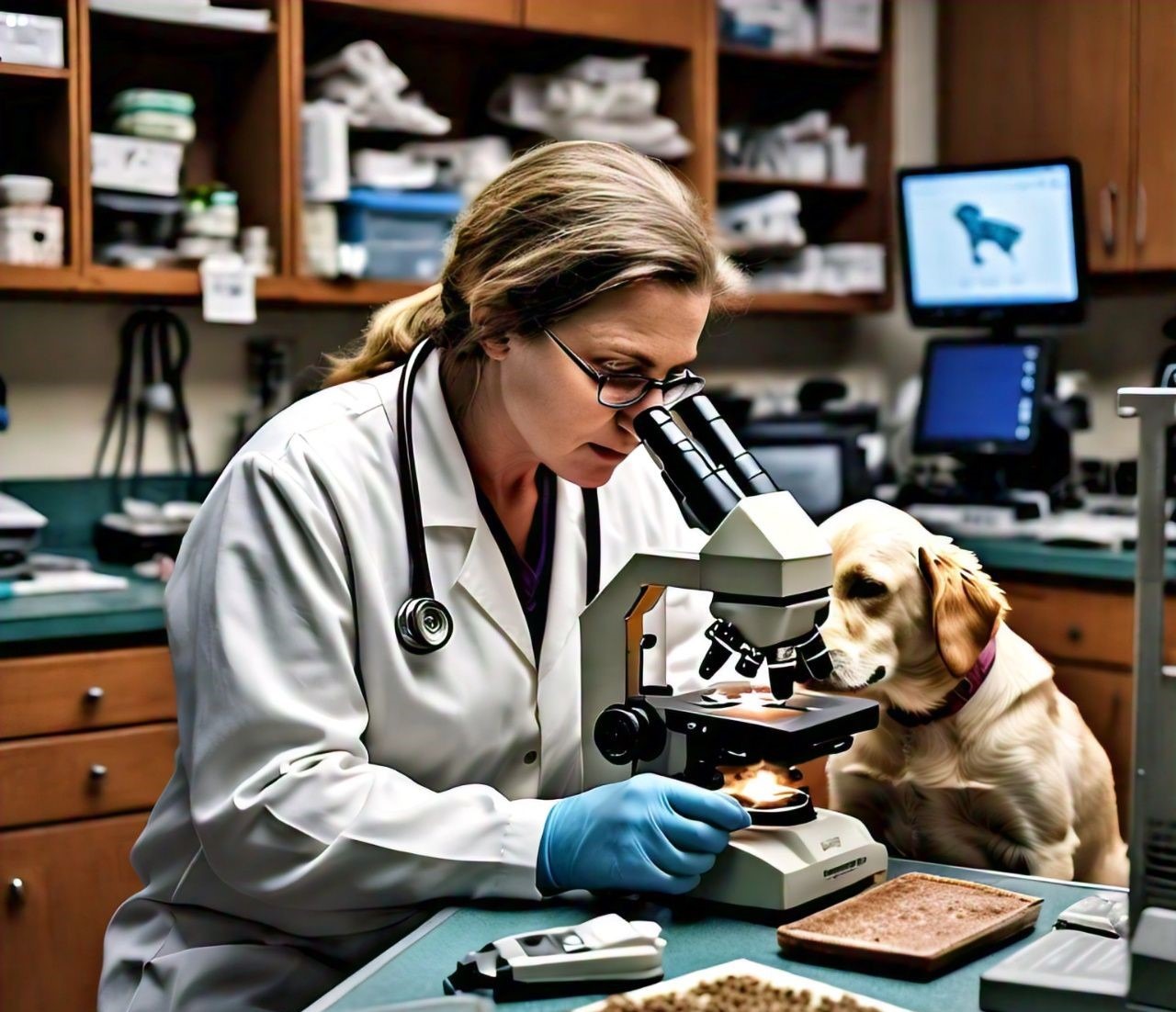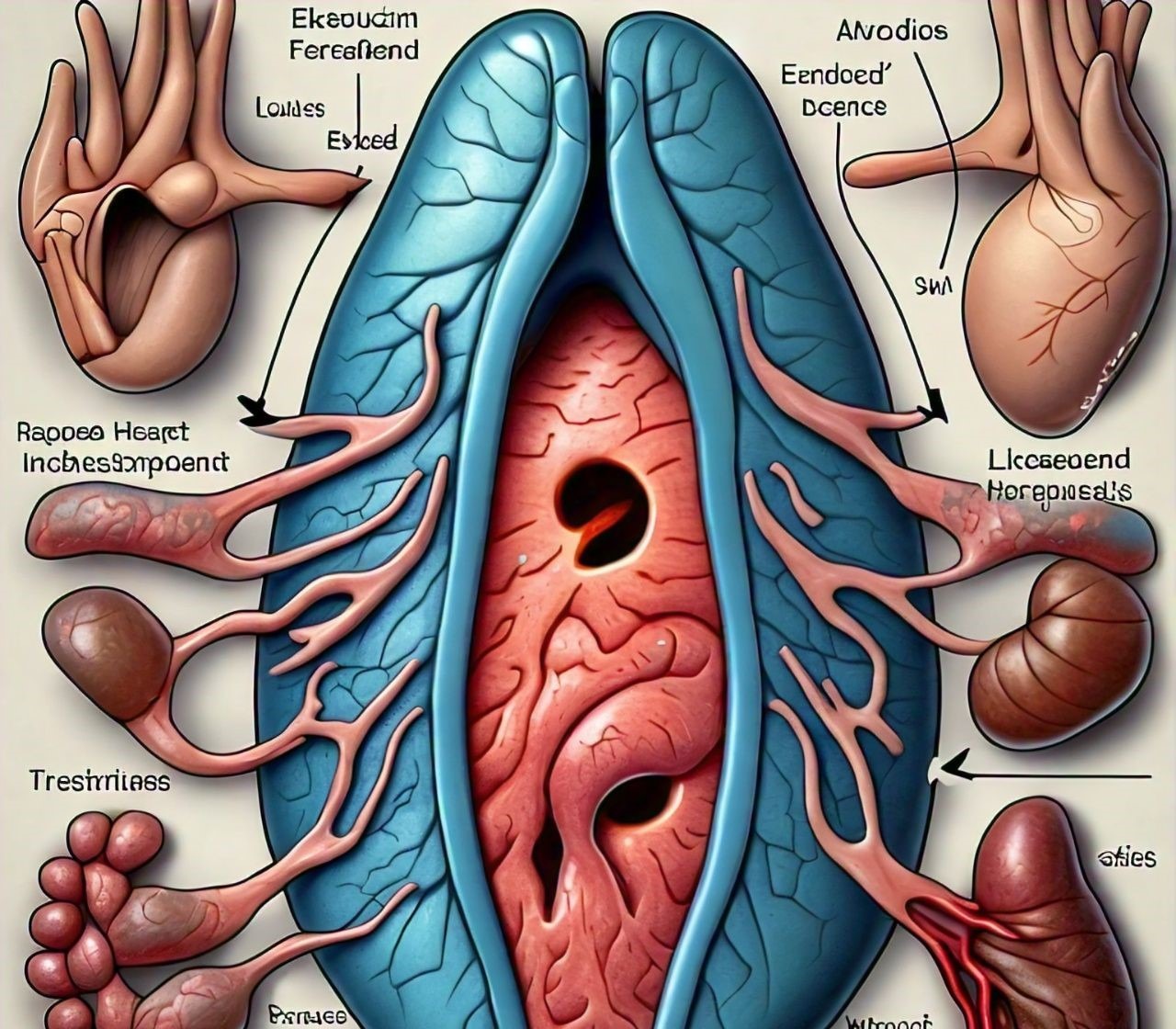Hookworm Disease in Dogs
Hookworm disease in dogs is a serious and potentially life-threatening condition caused by parasitic worms. These worms attach themselves to the intestinal lining of the host, causing significant blood loss and malnutrition. In this comprehensive guide, we will delve into the causes, symptoms, diagnosis, and the latest effective treatments for hookworm disease in dogs. Understanding this condition is crucial for dog owners who want to ensure the health and well-being of their furry companions.
Understanding Hookworm Disease in Dogs
Hookworm disease in dogs is caused by several species of hookworms, with Ancylostoma caninum being the most common culprit. These parasites are small, measuring only a few millimeters in length, but they can cause substantial harm to their hosts. Hookworms attach to the intestinal walls and feed on the host’s blood, leading to anemia and other serious health issues.
Causes of Hookworm Disease in Dogs
Dogs can contract hookworm disease through various routes. Understanding these transmission methods is key to preventing the disease:
- Ingestion of Larvae: Dogs can ingest hookworm larvae from contaminated soil or feces. This is common in areas with poor sanitation.
- Skin Penetration: Hookworm larvae can penetrate the skin, especially through the paws, leading to infection. This is more common in puppies who play in contaminated areas.
- Transmammary Transmission: Puppies can acquire hookworm disease from their mothers’ milk if the mother is infected.
Symptoms of Hookworm Disease in Dogs
Recognizing the symptoms of hookworm disease in dogs is crucial for early diagnosis and treatment. The signs can vary depending on the severity of the infection and the age of the dog. Common symptoms include:
- Anemia: Pale gums and lethargy due to blood loss.
- Weight Loss: Infected dogs often lose weight despite a normal appetite.
- Diarrhea: Sometimes bloody, indicating intestinal damage.
- Poor Coat Condition: A dull and dry coat can be a sign of malnutrition.
- Weakness: General weakness and reduced activity levels.
Diagnosis of Hookworm Disease in Dogs
Veterinarians diagnose hookworm disease in dogs through a combination of clinical signs and laboratory tests. A fecal examination is commonly used to identify hookworm eggs in the stool. In some cases, blood tests may be necessary to assess the severity of anemia and other related conditions.
New Effective Treatments for Hookworm Disease in Dogs
Advancements in veterinary medicine have led to new and more effective treatments for hookworm disease in dogs. These treatments focus on eliminating the parasites, managing symptoms, and preventing reinfection. Here are some of the latest approaches:
1. Anthelmintic Medications
The cornerstone of treatment for hookworm disease in dogs is the use of anthelmintic medications. These drugs are specifically designed to kill parasitic worms. Commonly used anthelmintics include:
- Pyrantel Pamoate: This medication is highly effective against hookworms and is often used as a first-line treatment.
- Fenbendazole: Another effective option that targets a broad range of intestinal parasites, including hookworms.
- Milbemycin Oxime: This medication is often included in combination products that provide protection against multiple parasites.
2. Supportive Care
In severe cases of hookworm disease in dogs, supportive care may be necessary to stabilize the dog’s condition. This can include:
- Blood Transfusions: For dogs with severe anemia, a blood transfusion may be required to restore red blood cell levels.
- Iron Supplements: To help combat anemia, iron supplements are often prescribed.
- Nutritional Support: Ensuring the dog receives a high-quality diet that supports recovery.
3. Preventative Measures
Preventing hookworm disease in dogs is essential to avoid reinfection and protect other pets. Effective prevention strategies include:
- Regular Deworming: Administering deworming medications regularly to keep hookworms at bay.
- Environmental Control: Maintaining clean living areas and disposing of feces promptly to reduce contamination.
- Monthly Preventatives: Using monthly heartworm preventatives that also protect against hookworms.
Case Studies: Success Stories of Hookworm Disease in Dogs
To illustrate the effectiveness of these new treatments, let’s look at a few success stories:
Case Study 1: Bella’s Recovery
Bella, a two-year-old Labrador Retriever, was brought to the vet with symptoms of severe anemia and weight loss. After a fecal examination confirmed hookworm disease, Bella was treated with pyrantel pamoate and iron supplements. Within weeks, her energy levels improved, and she regained her lost weight. Bella’s owner also implemented regular deworming and environmental control measures to prevent future infections.
Case Study 2: Max’s Turnaround
Max, a six-month-old German Shepherd puppy, was diagnosed with hookworm disease after presenting with bloody diarrhea and weakness. The vet prescribed fenbendazole and a high-quality diet. Max responded well to the treatment, and follow-up tests showed no signs of hookworm eggs in his stool. His coat condition improved, and he became more active and playful.
The Importance of Regular Veterinary Check-Ups
Regular veterinary check-ups are crucial for early detection and treatment of hookworm disease in dogs. During these visits, veterinarians can perform routine fecal examinations and recommend appropriate deworming schedules. Early intervention can prevent the disease from progressing to a severe stage and ensure the overall health of your dog.
Hookworm Disease in Dogs: A Global Perspective
Hookworm disease in dogs is a global issue, with prevalence varying by region. In tropical and subtropical areas, the risk of infection is higher due to favorable environmental conditions for hookworm larvae. In contrast, temperate regions may see lower rates of infection but are not immune to outbreaks. Understanding the regional prevalence of hookworm disease in dogs can help veterinarians and pet owners take appropriate preventive measures.
Advances in Research and Future Directions
Ongoing research into hookworm disease in dogs is leading to new insights and potential treatments. Scientists are exploring the development of vaccines that could provide long-term protection against hookworms. Additionally, advancements in diagnostic techniques may lead to quicker and more accurate detection of infections.
Emerging Treatments and Innovations
Recent innovations in veterinary medicine have led to the development of new treatments for hookworm disease in dogs. Researchers are exploring novel drug formulations that can more effectively target hookworm larvae at various stages of their life cycle. Additionally, advancements in drug delivery systems, such as long-acting injectables, offer the promise of more convenient and sustained protection against hookworms.
Holistic and Integrative Approaches
Some pet owners and veterinarians are exploring holistic and integrative approaches to manage hookworm disease in dogs. These approaches include using natural deworming agents like pumpkin seeds and coconut oil, which have been traditionally believed to possess anti-parasitic properties. Additionally, incorporating probiotics and digestive enzymes into the dog’s diet can support gut health and improve the overall efficacy of conventional treatments.
Role of Public Awareness and Education
Raising public awareness about hookworm disease in dogs is crucial for effective prevention and control. Educational campaigns that inform pet owners about the risks of hookworm infection, proper hygiene practices, and the importance of regular veterinary check-ups can significantly reduce the incidence of this disease. Collaborations between veterinarians, pet organizations, and local communities can help disseminate vital information and promote responsible pet ownership.
Conclusion
Hookworm disease in dogs is a serious condition that requires prompt diagnosis and effective treatment. With the latest advancements in veterinary medicine, new and more effective treatments are available to combat this parasitic infection. By understanding the causes, symptoms, and treatment options, dog owners can take proactive steps to protect their pets from hookworm disease.
For more information on fitness and health, check out these resources:
Explore more articles on our site:
- How to Increase Running Stamina for Beginners at Home
- What Happens if You Don’t Get Enough Sleep Consistently: Effects and Solutions
- The Ultimate Guide to Healthy Living in 2024
- The Future of Artificial Intelligence: What to Expect
- Unlocking the Potential of Chat GPT Software: Revolutionizing AI Conversations
- Best Sleeping Position for Peripheral Artery Disease [New 2024]
- How to Increase Running Stamina for Beginners at Home
- 5 New Inner Thigh Exercises for Men and Women




